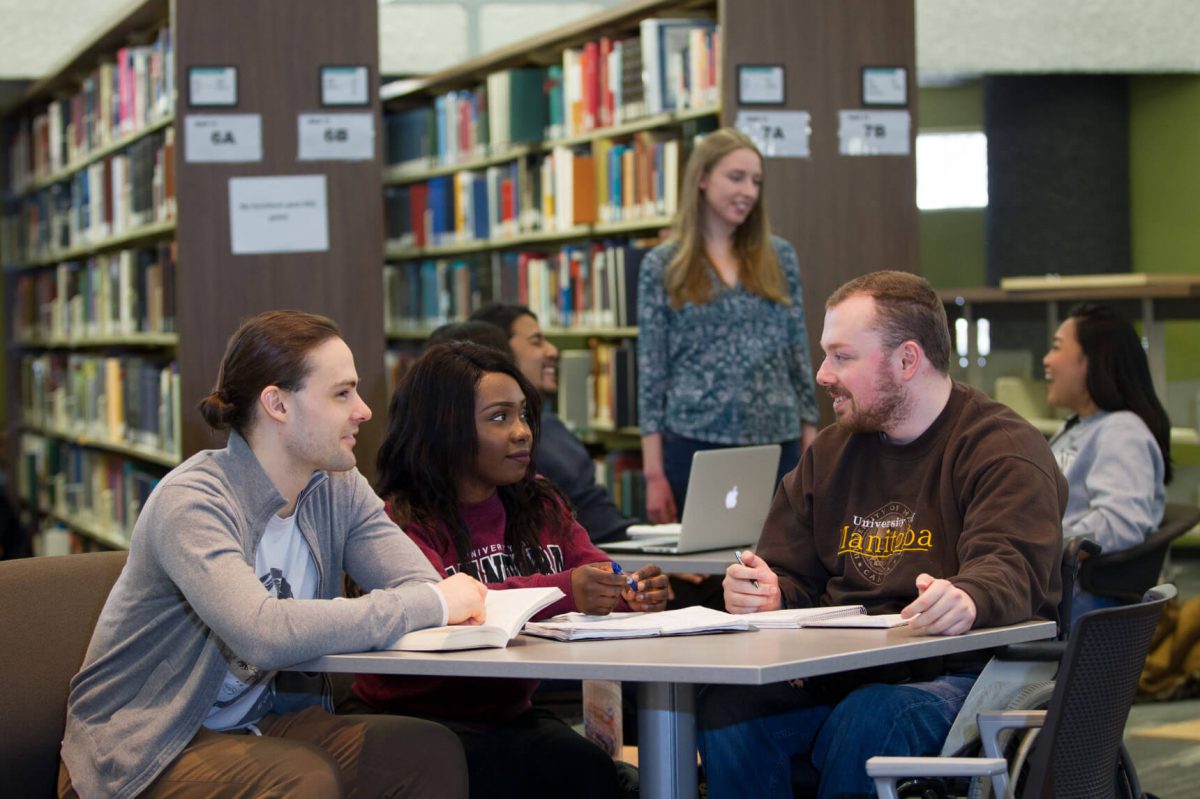
Disability Studies program celebrating 20 years
In 2003, academics and people with disabilities came together to realise a dream and close a gap in the academic system. The interdisciplinary master’s program in disability studies was created from the need for a discipline that looked at disability studies through the lens of the social model—that is, disabled people are disabled by the barriers in society, physical, attitudinal and systemic. This program was the first interdisciplinary master’s program in disability studies in North America. It is also the first program to be founded with the disability community involved.
Extensive consultation with community-based representative disability organizationsand academics, including educators and researchers, provided great insight and direction to the development of the disability studies program at UM. The program arose from Manitoba being a hub for the disability rights movement locally, nationally, and internationally. Thus, the University of Manitoba was an ideal location for a disability studies program anchored in the disability movement.
Director Dr. Nancy Hansen explains: “Winnipeg is the cradle of the disability rights movement in Canada. Many of the founders of the movement were from Manitoba and were instrumental in the local, provincial, national and international organizations and legislation.”
Today, the two-year thesis-based program is continuing to set up its students and alumni for success and impact. Governments, university colleagues and the media regularly seek out input from the program’s faculty and staff.
In addition to promoting interdisciplinary and collaborative work in disability studies, the program continues to have dialogue with the UM about what it means to be anti-ableist in the academic environment. Ableism is a set of ideas that promotes being able-bodied as better than being disabled, and that disabled persons are not capable or welcome to participate fully in society.
The program’s graduates are having an impact at UM. Johnathan Bevan is currently an educational developer with The Centre for the Advancement of Teaching and Learning. He had already been working in the human services for 17 years when he decided to find a way to re-engage with his work and looked into the disability studies program.
“I knew these were powerful ideas that could significantly change the lives of the people I was supporting,” Bevan says, knowing he had found the right program to inform him. “It gave me a unique perspective, actionable knowledge and improved my ability to articulate how change can be made possible if we just begin to remove barriers to inclusion.”
With such a crucial role to the future of UM, Bevan lets this perspective lead his work: “The key to this work is listening to disabled people. They know best how they are affected by exclusion and have the ideas needed to design more inclusive environments and systems.”
Bevan will be working with different faculties across the university to promote accessibility and full participation for people with disabilities. He leaves us with one thought: “It is important to understand that barriers are very difficult to perceive unless you are the one experiencing them. Learning together is the only way to generate inclusive design that meaningfully removes barriers for everyone.”
This perspective also reflects the experiences of spring 2023 graduate Gloria Boateng. Speaking to the program’s collaborative nature, Boateng reiterated that she “studied with individuals from diverse backgrounds with diverse observations and experiences about disability.”
The program emboldened and provided her with the skillset and perspectives she needed. Experts from disability organizations and disabled people are directly involved in course delivery.
“It has helped me debunk my earlier cultural socialization and assumptions about persons with disabilities which were shrouded in myths and superstitions,” Boateng says. She hopes to eventually do the same for future generations with effective community education to shift society away from ableist attitudes and narratives about people with disabilities.






